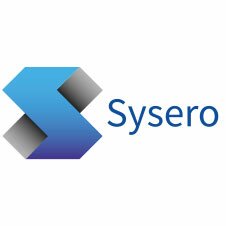Discover the five benefits of cloud-based workflow automation with Sysero
In today’s digital world, many organisations are transforming once tedious and manual-based processes into digitally-driven optimised workflows. Cloud-based workflows have long powered processes across the corporate sector, and in recent years, law firms and other professional services organisations have begun to unlock the potential of cloud-based workflows.
Faced with the ‘great resignation’, the rise of hybrid work, and the increased need for agility and flexibility, law firms are embracing cloud-based workflows to help drive efficiency, enhance client experience, and boost productivity. A recent survey reports that more than half of UK law firms are prioritising investment in process automation technologies in hopes that it will help its lawyers and staff manage ever-increasing workloads. While the benefits of cloud-based workflows are plentiful, here we highlight five key benefits that your firm should be aware of.
Enhanced Efficiency
Today’s clients have come to expect always-on service and value-based pricing, and cloud-based workflows can help law firms deliver. By bringing traditional processes to the cloud, your firm can help liberate lawyers and legal operations from the burden of time-intensive processes, such as client intake and onboarding, document generation, and contract execution. For example, your firm could use workflow automation to streamline the contract lifecycle – from automating contract creation and review to securing e-signatures and executing contracts.
Reduced Risk
Automated cloud-based workflows can reduce risk in a number of ways. Not only does automation help reduce the risk of human error, but it also enables you to build best practices and compliance into everyday operations. Take for example, how top-tier rated international law firm Wikborg Rein launched a digital client intake solution that provides users with an intuitive web interface where they can quickly register new clients and cases, ensure the required information is captured, and verify client data in accordance with current regulations.
Lower IT Cost
With technologies like low-code and no-code workflows, cloud-based workflows can actually help reduce ongoing internal IT costs. Low-code platforms empower lawyers and staff to quickly and easily build custom workflows on the fly, without significant support from IT. A Deloitte study even estimates that workflow automation can reduce general business costs by 30 percent, which takes into account staff and time savings, as well as accuracy improvements.
These flexible and agile platforms deliver greater flexibility, agility, and productivity across teams, while also enabling firms to overcome a growing digital skills shortage. Furthermore, these platforms can be used for a variety of different use cases, from streamlining client acceptance and business processes to generating documents.
Improved Scalability
Using cloud-based low-code/no-code workflows, law firms can also greatly increase scalability. By putting the power of automation into the hands of lawyers and staff, firms can make it easier to create an effective, customised, and consistent process – both internally and externally. For example, Spoor & Fisher Jersey recently launched a robust low-code solution that streamlines the entire status updates process for its trademark and formalities. The result: achieved client response times and elevated internal morale.
Bolstered Security
Security is a key responsibility for the modern law firm, and cloud-based workflows can help ensure your client data is properly protected, even in the case of a data breach. Legal workflows can be used to enforce data security across your firm and ensure data is being obtained, managed, and retained in accordance with data protection and retention policies, such as the UK Data Protection Act.
Cloud-based workflows can also be combined with on-premise storage, providing both the flexibility and accessibility of the cloud and the enhanced security of an in-house system. These hybrid workflows allow clients to share information with firms via cloud-based workflows and then pull that information directly to an in-house server, where it can be stored safely and securely behind your firm’s firewall.
Cloud-Based Workflows Are Crucial for Today’s Law Firms
As pressure mounts on law firms to become more digitally-minded and efficient, cloud-based workflows provide the opportunity to deliver greater productivity and profitability. The sooner you bring workflow automation to your firm, the sooner you can start reaping the benefits. To learn more about workflow automation solutions for law firms, please visit sysero.com.



